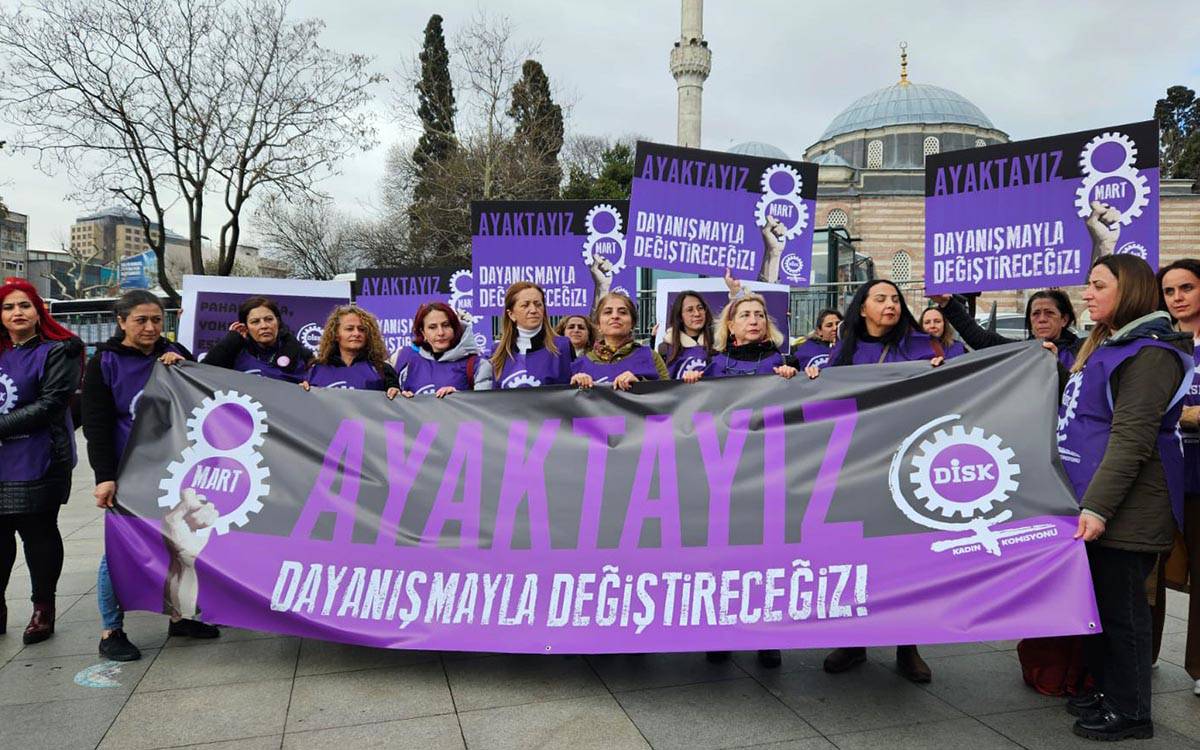DİSK/Genel-İş union Labor Studies (EMAR) shared the 8 March Women's Labor Report prepared in order to draw attention to the overlooked issues of women's labor and increase its visibility.
The report, under nine headings, highlights that women are being squeezed between the roles of "cheap labor" and "sanctified motherhood."
- Gender gap in employment in Turkey is 34.6%!
- Only 3 out of every 10 women are in the workforce!
- Increase in proletarianization: 73.5% of female employment is in labor, while only 1.8% is in entrepreneurship!
- Only 34% of employment in the public sector is held by women!
- Female unemployment in Turkey is more than twice that of EU and OECD member countries!
- The number of women unemployed under the broad definition is around 4.5 million!
- Nearly 12 million women cannot participate in the workforce due to family and personal reasons and household chores!
- 30.8% of employed women are working in the informal sector!
- 3,248,000 women lack social security coverage!
In the conclusion section of the report, the following demands were listed:
All forms of discrimination against women in the workplace should be abandoned, and efforts should be made to end flexible working arrangements, gender-based division of labor, and wage inequality. Secure and regular employment opportunities should be created.
Equal representation in authority and decision-making mechanisms should be ensured.
Public services for child, elderly, disabled, and sick care, which are obstacles to women's employment, should be provided, and social policies that relieve women of household chores should be implemented.
March 8 should be considered a paid leave day for women.
Obstacles to women's organizing should be removed.
ILO Convention No. 190 on Violence and Harassment, which entered into force on June 25, 2021, should be ratified by Turkey and effectively implemented.
The İstanbul Convention and Law No. 6284 should be effectively implemented.
In cases of gender-based crimes and women's murders, practices such as gender-based leniency and provocation reductions should be abandoned.
Instead of flexible working arrangements proposed to increase women's employment, full-time and secure employment opportunities should be created for women, and working hours should be reduced. (VC/PE)





